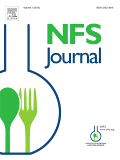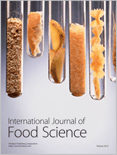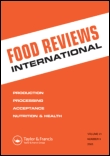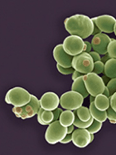
Future Foods
Scope & Guideline
Exploring the future of sustainable food systems.
Introduction
Aims and Scopes
- Alternative Proteins and Food Sources:
The journal emphasizes the exploration of alternative protein sources, including plant-based proteins, insects, and microalgae, to address sustainability and nutritional needs in food systems. - Innovative Food Processing Technologies:
Research on novel processing methods, such as 3D food printing, cold plasma technology, and enzymatic extraction, is a core focus, aiming to enhance the quality, safety, and nutritional value of food products. - Consumer Acceptance and Behavior:
Understanding consumer perceptions, preferences, and willingness to pay for novel and sustainable food products is a recurring theme, which helps to bridge the gap between innovation and market acceptance. - Sustainable Food Practices and Waste Valorization:
The journal highlights research on food waste reduction, upcycling by-products, and sustainable agricultural practices to promote a circular food economy. - Health and Nutritional Aspects of Foods:
The assessment of health benefits, functional properties, and bioactive components in foods is crucial, with a focus on how these attributes can be enhanced through innovative processing.
Trending and Emerging
- Sustainable Food Innovations:
A growing trend towards sustainability is evident, with research exploring new food sources, such as edible insects and plant-based alternatives, aimed at reducing environmental impact and enhancing food security. - 3D Food Printing and Customization:
The emergence of 3D food printing technologies has gained popularity, with studies focused on the customization of food textures and flavors, reflecting consumer demand for personalized food experiences. - Functional Foods and Nutraceuticals:
Research on the health benefits and bioactive compounds in foods is trending, with an increasing emphasis on how these can be enhanced through innovative processing to meet consumer health demands. - Consumer-Centric Research:
There is a notable increase in studies addressing consumer behavior, acceptance, and willingness to pay for novel food products, which is critical for guiding the development of future food innovations. - Waste Valorization and Circular Economy:
Emerging themes include the valorization of food industry waste and by-products, reflecting a growing focus on circular economy principles and sustainable practices in food production.
Declining or Waning
- Traditional Food Preservation Methods:
Research on conventional food preservation techniques has decreased as newer, more effective methods gain traction, leading to a focus on innovative technologies such as cold plasma and nanotechnology. - Generalized Studies on Conventional Meat Products:
There has been a noticeable decline in studies focusing solely on traditional meat products without considering alternative sources or innovative processing methods, as the interest shifts towards sustainable and alternative proteins. - Basic Nutritional Studies:
While foundational nutritional research remains important, there is a decreasing trend in basic studies without a direct application to innovative food technologies or sustainability, as the field moves towards more applied research.
Similar Journals

Applied Food Research
Elevating Food Science Through Pioneering ResearchApplied Food Research, published by Elsevier, is an esteemed journal that plays a critical role in advancing the field of Food Science. With an ISSN of 2772-5022, the journal has established itself as a premier outlet for high-quality research, achieving a commendable Q1 ranking in the 2023 Food Science category and a 63rd percentile in Scopus rankings for Agricultural and Biological Sciences. Covering a diverse range of topics from food safety to innovative processing techniques, Applied Food Research seeks to publish pioneering studies that enhance our understanding of food systems and contribute to broader discussions on sustainability and nutrition. As it converges on its fourth year of publication, researchers, professionals, and students alike are encouraged to engage with its content through various open access options, ensuring widespread dissemination of knowledge in a field that is vital to global health and well-being. Operating out of Amsterdam, Netherlands, this journal is poised to be an indispensable resource for anyone dedicated to making significant contributions in the domain of food science.

ITALIAN JOURNAL OF FOOD SCIENCE
Advancing the Frontiers of Food ScienceITALIAN JOURNAL OF FOOD SCIENCE is a distinguished open-access publication dedicated to advancing knowledge in the field of food science, catering to a global audience of researchers, professionals, and students. Published by Codon Publications in Singapore, this journal, operating under the ISSN 1120-1770 and E-ISSN 2239-5687, has been a vital platform for scholarly discourse since its inception in 1996, converging towards a comprehensive view of food science trends through 2024. With an impressive ranking in the third quartile (Q3) of the Food Science category and a Scopus rank of #151 out of 389, the journal plays a significant role in disseminating high-quality research, contributing to a richer understanding of food science within the agricultural and biological sciences. Since transitioning to open access in 2008, it has further expanded its reach, ensuring that innovative research is accessible to all, thereby fostering collaboration and knowledge exchange in this vital industry.

Journal of Food Science and Technology-Ukraine
Exploring Innovations in Food Preservation and ProcessingJournal of Food Science and Technology-Ukraine, published by the Odesa National University of Technology, stands as a pivotal platform dedicated to the dissemination of high-quality research in the field of food science and technology. With its open access policy established in 2014, the journal fosters global knowledge sharing and accessibility, enabling researchers, professionals, and students to access critical findings and advancements in food technology without barriers. The journal's commitment to publishing innovative studies, reviews, and case analyses reinforces its role in addressing contemporary challenges in food safety, preservation, processing, and nutritional quality. With ISSN 2073-8684 and E-ISSN 2409-7004, it serves as a valuable resource for the academic community, supporting the advancement of food science knowledge and its practical applications.

NFS Journal
Unveiling groundbreaking research in Food Science and Nutrition.NFS Journal, published by ELSEVIER, is at the forefront of research in the fields of Food Science and Nutrition and Dietetics, boasting an impressive impact factor that underscores its significance. With an Open Access model since 2015, the journal facilitates widespread dissemination and accessibility of high-quality research, making it a valuable resource for scholars and practitioners alike. Located in Germany, this journal has made its mark with its prestigious Q1 ranking in both Food Science and Nutrition and Dietetics as of 2023, positioning it among the top-tier journals in these disciplines. Additionally, it holds an outstanding standing in Scopus rankings, being placed at 10th out of 140 in Nutrition and Dietetics and at 27th out of 389 in Food Science, reflecting its influence and reach within the global academic community. The NFS Journal is dedicated to publishing the latest advancements and practices that shape our understanding of the relationship between food, health, and nutrition, appealing to researchers, professionals, and students eager to stay updated with novel insights and breakthroughs.

International Journal of Food Science
Empowering Research in Food Safety and NutritionThe International Journal of Food Science, published by HINDAWI LTD, stands as a crucial platform for advancing knowledge within the realm of food science. Established in 2013, this Open Access journal based in Egypt has garnered significant recognition, achieving an impressive Q2 classification in the 2023 Food Science category, which reflects its commitment to quality and impactful research. With a Scopus rank of #88 out of 389 in Agricultural and Biological Sciences and placing in the 77th percentile, this journal serves as an essential resource for researchers, professionals, and students dedicated to innovative developments and scientific exploration in food science. The journal not only provides unrestricted access to valuable research but also aims to foster collaboration and dissemination of knowledge on critical issues affecting food safety, nutrition, and technology. For those looking to keep abreast of the latest advancements, the International Journal of Food Science is certainly an indispensable addition to their academic pursuits.

FOOD SCIENCE AND BIOTECHNOLOGY
Exploring the Intersection of Science and Culinary ArtsFOOD SCIENCE AND BIOTECHNOLOGY, published by the Korean Society of Food Science & Technology (KOSFOST), stands as a prominent peer-reviewed journal dedicated to advancing knowledge in the fields of food science, biotechnology, and applied microbiology. With ISSN 1226-7708 and E-ISSN 2092-6456, this journal serves as a pivotal platform for disseminating high-impact research from South Korea and beyond, reflecting a robust Q2 ranking in multiple categories including Applied Microbiology and Biotechnology, Biotechnology, and Food Science as of 2023. The journal's influence is further emphasized by its positions in various Scopus ranks, where it showcases a commendable percentile ranking in Agricultural and Biological Sciences and Biochemistry. Although access options remain limited, the journal’s objectives revolve around the publication of innovative research, fostering interdisciplinary collaboration, and facilitating the exchange of ideas among a diverse community of researchers, professionals, and students. Whether you are involved in food technology, microbial biotechnology, or nutritional sciences, FOOD SCIENCE AND BIOTECHNOLOGY are instrumental in shaping the future of these critical fields, propelling advancements that enrich our understanding of food systems and health.

FOOD TECHNOLOGY AND BIOTECHNOLOGY
Transforming Ideas into Impactful Food InnovationsFOOD TECHNOLOGY AND BIOTECHNOLOGY is a distinguished peer-reviewed journal published by the Faculty of Food Technology and Biotechnology, University of Zagreb, Croatia. Since its inception in 1993, this Open Access journal has become a crucial platform for disseminating innovative research in the fields of food science, biotechnology, and chemical engineering. With a commendable impact factor and consistent Q2 and Q3 rankings across multiple categories—including Biotechnology, Food Science, and Industrial Engineering—this journal not only fosters academic discussions but also addresses real-world challenges in food production, safety, and sustainability. As it converges its thematic scope from 1996 to 2024, FOOD TECHNOLOGY AND BIOTECHNOLOGY remains committed to advancing knowledge through high-quality research and interdisciplinary collaboration, making it an essential resource for researchers, professionals, and students seeking to stay at the forefront of food innovation and biotechnology.

FOOD REVIEWS INTERNATIONAL
Pioneering Critical Insights in Food ResearchFOOD REVIEWS INTERNATIONAL, published by Taylor & Francis Inc, serves as a pivotal resource within the fields of Food Science and Chemical Engineering. Established in 1985, this esteemed journal offers a comprehensive platform for the dissemination of critical reviews that enhance understanding and innovation in the food industry. With an impressive impact factor reflecting its Q1 quartiles in both Food Science and Chemical Engineering categories, it ranks among the top journals in Scopus, securing the 24th spot in Agricultural and Biological Sciences. Scholars, researchers, and professionals are encouraged to explore its rich content, which spans meticulously reviewed articles that bridge academic research and practical applications, while contributing to advancements in food safety, processing, and sustainability. Although not an Open Access journal, access to its extensive repository is vital for anyone aiming to stay at the forefront of food science advancements.

Annual Review of Food Science and Technology
Empowering Scholars in the Evolving World of Food ScienceThe Annual Review of Food Science and Technology, published by ANNUAL REVIEWS, is an esteemed journal dedicated to advancing the knowledge within the field of food science. With an impressive Q1 ranking in the Food Science category, and ranking as #6 out of 389 in the Scopus Agricultural and Biological Sciences category, the journal serves as a vital resource for researchers, professionals, and students. This publication encapsulates comprehensive reviews and cutting-edge research, helping to bridge the gap between research and practical application. Though it does not offer Open Access, it provides valuable insights into various aspects of food science from 2010 to 2024, ensuring that its readership stays at the forefront of emerging trends and innovations. The journal's focus on high-quality, peer-reviewed articles makes it a critical platform for scholars looking to deepen their understanding and contribute to this rapidly evolving field.

Current Research in Nutrition and Food Science
Transforming research into impactful solutions.Current Research in Nutrition and Food Science is a premier academic journal dedicated to advancing knowledge in the fields of nutrition and food science. Published by ENVIRO RESEARCH PUBLISHERS, this journal serves as a critical platform for researchers, professionals, and students to disseminate impactful research findings. With its Q3 ranking in both Food Science and Medicine (miscellaneous) categories for 2023, it reflects its commitment to quality and relevance within these disciplines. The journal operates under an open access model, ensuring that its content is readily available to a global audience, thus promoting collaboration and innovation across various sectors. Covering a wide range of topics from agricultural practices to the biochemical aspects of nutrition, Current Research in Nutrition and Food Science invites contributions that push the boundaries of understanding, addressing contemporary challenges in food safety, dietary health, and nutrition policies. As it continues its journey from 2013 to 2024 and beyond, the journal occupies an essential role in fostering a dialogue among scholars and practitioners, supporting the advancement of science and, ultimately, healthier global communities.